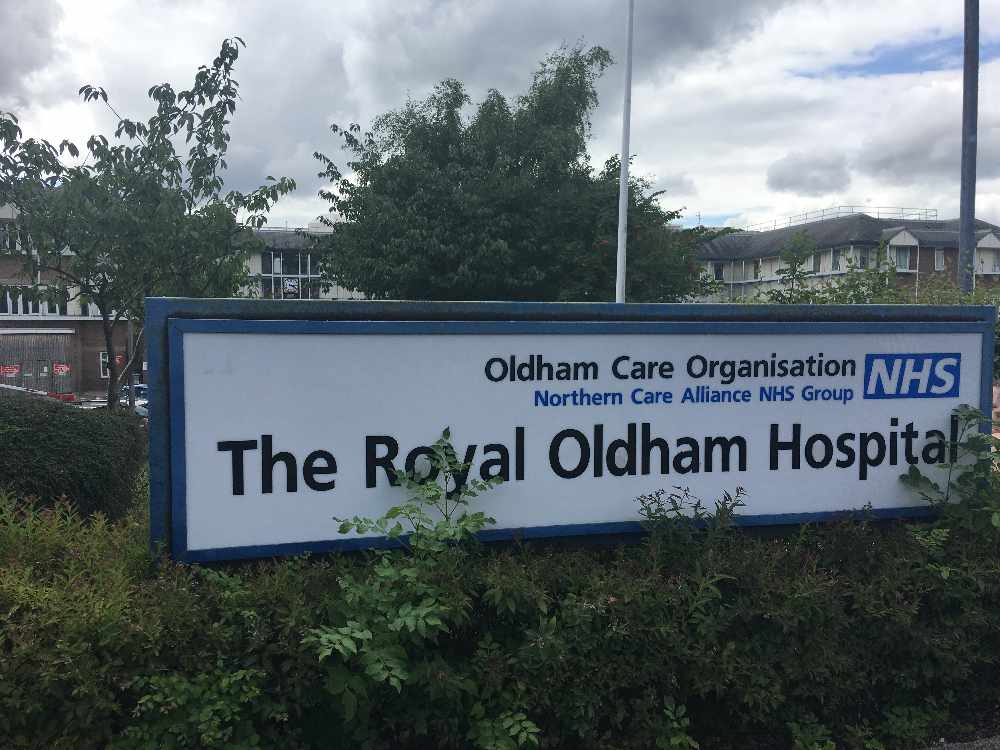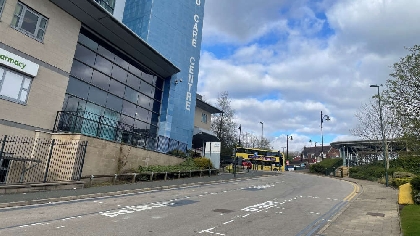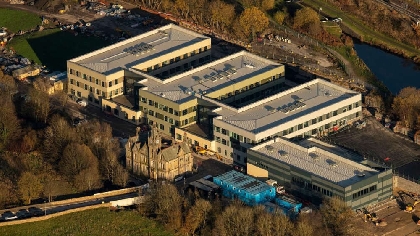
Bed shortages at Oldham's hospital have forced some patients to wait on trolleys for up to 12 hours as Covid-19 pressures continue to mount.
The Oldham Royal, like every hospital across the country, is struggling to continue running as normal while dealing with the second wave of coronavirus cases.
An existing lack of space in hospitals has been exacerbated during the pandemic, with staff having to deal with emergency admissions in a different way.
Patients are now separated at the front door depending on whether or not they have respiratory issues to try and reduce contact with others while health workers test to see if they have the virus.
The need for stringent infection control measures has also reduced the amount of space that can be used, effectively cutting bed numbers.
This deficit of beds has led to patients at The Oldham Royal being left on trolleys for 12 hours or more.
Mike Barker, chief operating officer at the Oldham clinical commissioning group, said the hospital building is currently ‘not fit for purpose for the 21st century’.
It is understood that on one day this week health bosses planned for a deficit of 71 beds, although this number will fluctuate as patients leave or don’t turn up for treatment.
The bed deficit can also increase if there is a nosocomial – hospital acquired – outbreak of coronavirus that causes wards to become quarantine bays.
Compensating for nosocomial outbreaks has led to a tightness around numbers of beds, and an issue around getting patients to flow through the hospital as they would in non-pandemic times.
David Jago, chief officer at The Oldham Royal told a meeting of the Northern Care Alliance (NCA) that prior to the pandemic there had been a shortage of 20 beds, but this has now risen.
He said: “Our emergency department at this moment in time in terms of its estate is challenged.
“We have £1.5m to spend on improving that and we’re looking at how we can best do that within the existing challenges where we’ve had to split out our respiratory and non-respiratory within A&E causing significant challenges for us to flow.
“The bed deficit that I articulated to colleagues, that’s clearly caused challenges to our 12 hour breaches and will continue to do so going forward.”
Bosses have been exploring ways of mitigating the ongoing bed deficit, including the use of a ‘virtual ward’ which became active in September.
The virtual wards are a continuation of care at home for patients who have already been seen or treated in hospital and who are clinically stable enough to go home.
Their ongoing care can involve visits by a district nurse and supervision by a relevant hospital consultant for a short period.
Patients are provided with an oximeter – a simple and reliable way to measure a person’s blood oxygen levels – and give a reading twice a day to the team.
Since its launch the ward has ‘saved’ 182 bed days and managed 27 patients, according to health documents.
Mr Jago said there were an average of ten patients currently going through the virtual ward, and they were working to see if they could double that rate.
However he explained there are also challenges around discharging patients back to care homes who continue to test positive for Covid-19.
There are only two care homes – Butler Green in Chadderton and Medlock Court in Lees – to which elderly people with the virus can be discharged into.
Both of these are to increase the numbers of patients they can accept from hospital, with Medlock Court moving from three to nine, and Butler Green expanding from 13 to 20.
“At any given stage there are over 300 care home placements free within Oldham but they cannot take Covid positive,” Mr Jago added.
“This is causing a real flow problem for us within the Oldham system.”
He told the meeting that major insurers are ‘absolutely refusing insurance outright’ to care homes if they agree to take positive coronavirus patients.
“We recognise the challenges in the system,” he added.
“We’re working with our improvement programme and through the NCA and the locality improvement board to absolutely do everything we possibly can around that capacity but that does not then go to say that we will be able to in the medium term mitigate all of those structural bed deficits at this moment in time.”
Mike Barker, from the CCG told Oldham councillors on Tuesday night: “I just think it’s a complete and total shame that the NHS has found itself underdeveloped on its capital estate and infrastructure.
“You only have to look at The Royal Oldham Hospital, that’s not fit for purpose for the 21st century and that’s why there is a capital investment programme going on right now.”
The report presented to the NCA states that: “An acceleration plan for Oldham Care Organisation is currently in progress in response to the increased site pressures and a number of 12 hour trolley waits.
“OCO continues to experience significant pressure from increasing demand and reduced capacity due to zoning, outbreaks and an underlying medical bed deficit.”
In a statement to the Local Democracy Reporting Service, David Jago said: “The pandemic has changed the way the NHS delivers care and The Royal Oldham Hospital like all other hospitals has had to split services into Covid and non-Covid zones to protect patients in a way that was not necessary before the pandemic, meaning some beds cannot be used due to enhanced infection prevention and control measures.
“Our priority and focus is always on patient safety and our staff work tirelessly in very busy conditions to ensure that the people who need our support receive good quality care.”
In August this year Oldham council’s planning committee approved the building of a four-storey extension on The Royal Oldham site.
The aim is for the extension to incorporate two new 24 bedded general surgery wards as well as a brand new emergency theatre, within the current theatres unit with supporting accommodation, enhanced recovery area and central storage.
This would allow the hospital to operate as the specialist hub site for high risk and emergency general and colorectal surgery for the north east of Greater Manchester.


 Man arrested after neighbours report hearing gunfire
Man arrested after neighbours report hearing gunfire
 OLDHAM: Council issues update on disabled parking after complaints
OLDHAM: Council issues update on disabled parking after complaints
 Oldham Coliseum rescue ‘very much back on the table’
Oldham Coliseum rescue ‘very much back on the table’
 School loses 'good' rating due to pupils' homophobic language a year after students suspended for Nazi salutes and racism
School loses 'good' rating due to pupils' homophobic language a year after students suspended for Nazi salutes and racism

